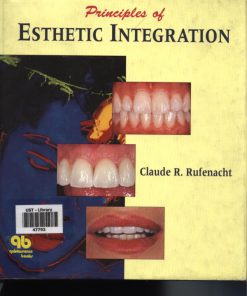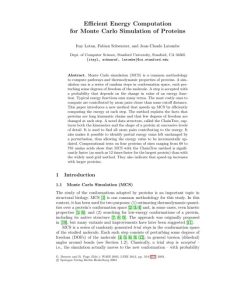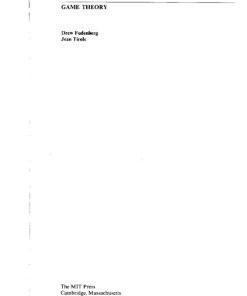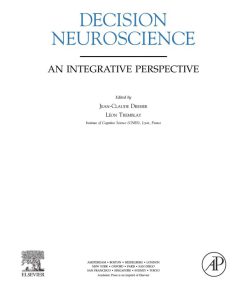Elements of Psychophysical Theory 1st Edition by Jean Claude Falmagne 0195148320 9780195148329
$50.00 Original price was: $50.00.$25.00Current price is: $25.00.
Authors:Jean-Claude Falmagne , Series:Psychology [215] , Tags:Psychology / Assessment; Testing & Measurement Psychology / Experimental Psychology Psychology / Physiological Psychology , Author sort:Falmagne, Jean-Claude , Ids:9780195148329 , Languages:Languages:eng , Published:Published:Oct 2002 , Publisher:Oxford University Press , Comments:Comments:This book presents the basic concepts of classical psychophysics, derived from Gustav Fechner, as seen from the perspective of modern measurement theory. The theoretical discussion is elucidated with examples and numerous problems, and solutions to one-quarter of the problems are provided in the text.
Elements of Psychophysical Theory 1st Edition by Jean Claude Falmagne – Ebook PDF Instant Download/Delivery. 0195148320, 9780195148329
Full download Elements of Psychophysical Theory 1st Edition after payment

Product details:
ISBN 10: 0195148320
ISBN 13: 9780195148329
Author: Jean-Claude Falmagne
This book presents the basic concepts of classical psychophysics, derived from Gustav Fechner, as seen from the perspective of modern measurement theory. The theoretical discussion is elucidated with examples and numerous problems, and solutions to one-quarter of the problems are provided in the text.
Elements of Psychophysical Theory 1st Table of contents:
Part I. BACKGROUND
1. Ordinal Measurement
Binary Relations
Equivalence Relations, Partitions, Functions
Algebraic Theory—Weak Orders
Biorders
*Complements
Exercises
2. Extensive Measurement
Construction of a Physical Scale for Length
Axioms for Extensive Measurement
Representation Theorem
Other Empirical Examples
*Complements and Proofs
Reference Notes—Further Developments
Exercises
3. Functional Equations
Cauchy and Related Equations
Plateau’s Experiment
*Normal Distribution of Sensory Variables
A Functional Inequality
Sincov Equations
Additive Systems
*Two Proofs
Exercises
Part II. THEORY
4. Fechner’s Psychophysics
Gustav Theodor Fechner, the Psychophysicist
Construction of a Fechnerian Scale
Fechner’s Problem
Psychophysical Discrimination Systems
Some Necessary Conditions
Representations and Uniqueness Theorem
*Proofs
Reference Notes
Exercises
5. Models of Discrimination
Random Variable Models
Thurstone’s Law of Comparative Judgments
*Extreme Value Distributions and the Logistic Model
Bradley-Terry-Luce Representations
A Model Inconsistent with a Fechnerian Representation
Statistical Issues
Selected References
Exercises
6. Psychometric Functions
Psychometric Families
Parallel Psychometric Families
Subtractive Families
Necessary Conditions for the Existence of a Subtractive Representation
Symmetric Families
Reference Notes
Exercises
*7. Further Topics on Psychometric Functions
Redefining Psychometric Families
Ordering the Backgrounds
Homomorphic Families
Representation and Uniqueness Theorems for Subtractive Families
Random Variables Representations
Exercises
8. Sensitivity Functions—Weber’s Law
Sensitivity Functions, Weber Functions
Linear Psychometric Families—Weber’s Law
Alternatives to Weber’s Law
Inequalities
Fechner’s Problem Revisited
Exercises
9. Psychophysical Methods
Traditional Psychophysical Methods
Adaptive Methods
Reference Notes
Exercises
10. Signal Detection Theory
ROC Graphs and Curves
A Random Variable Model for ROC Curves
ROC Analysis and Likelihood Ratios
ROC Analysis and the Forced Choice Paradigm
ROC Analysis of Rating Scale Data
The Gaussian Assumption
The Threshold Theory
Rating Data and the Threshold Theory
A General Signal Detection Model
Reference Notes
Exercises
11. Psychophysics with Several Variables or Channels
A General Model for Two-Channel Detection
Probability Summation
Two Addditive Pooling Rules
Additive Conjoint Measurement—The Algebraic Model
Random Additive Conjoint Measurement
Probabilistic Conjoint Measurement
Bisection
*Proofs
Exercises
12. Homogeneity Laws
The Conjoint Weber’s Laws—Outline
The Conjoint Weber’s Law—Results
*The Strong Conjoint Weber’s Laws
*The Conjoint Weber’s Inequality
Shift Invariance in Loudness Recruitment
Exercises
13. Scaling and the Measurement of Sensation
Types of Scales
Unidimensional Scaling Methods
The Krantz-Shepard Theory
Functional Measurement
The Measurement of Sensation—Sources of the Controversy
Two Positions Concerning the Scaling of Sensory Magnitudes
Why a Psychophysical Scale?
Exercises
14. Meaningful Psychophysical Laws
Examples
Scale Families
Meaningful Families of Numerical Codes
*Isotone and Dimensionally Invariant Families of Numerical Codes
An Application in Psychoacoustics
Why Meaningful Laws?
*Complements
People also search for Elements of Psychophysical Theory 1st:
4 element movement system model
4 elements of physical health
4 elements of physical fitness
3 physical properties of elements
You may also like…
eBook PDF
Principles of Esthetic Integration 1st edition by Claude Rufenacht 0867153695 9780867153699












